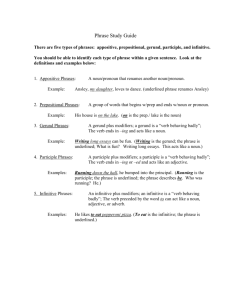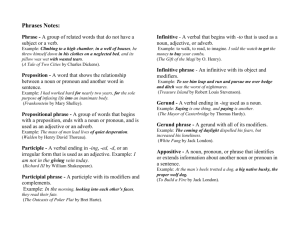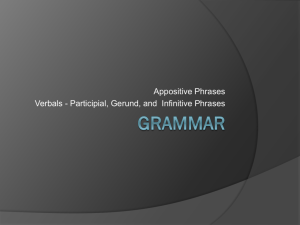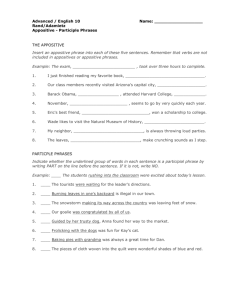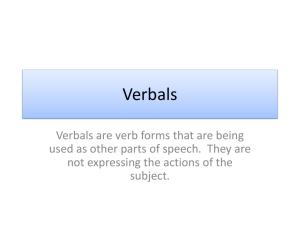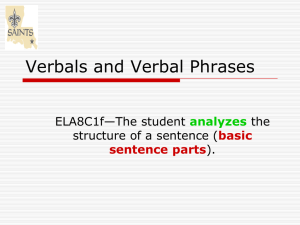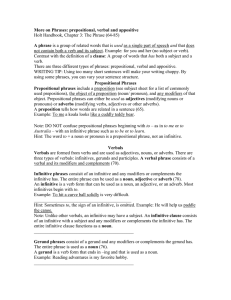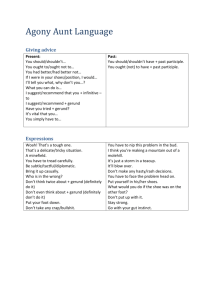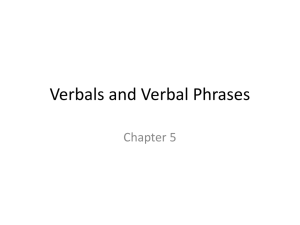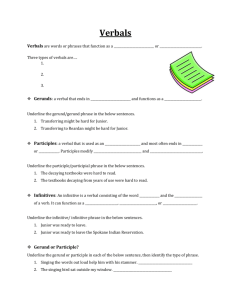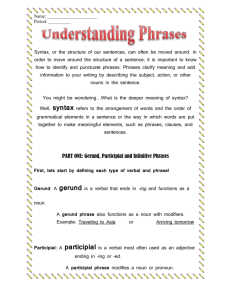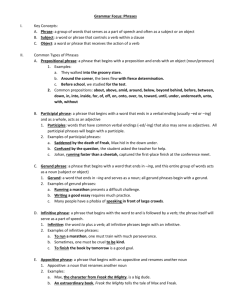Verbals and Verbal Phrases Worksheet
advertisement
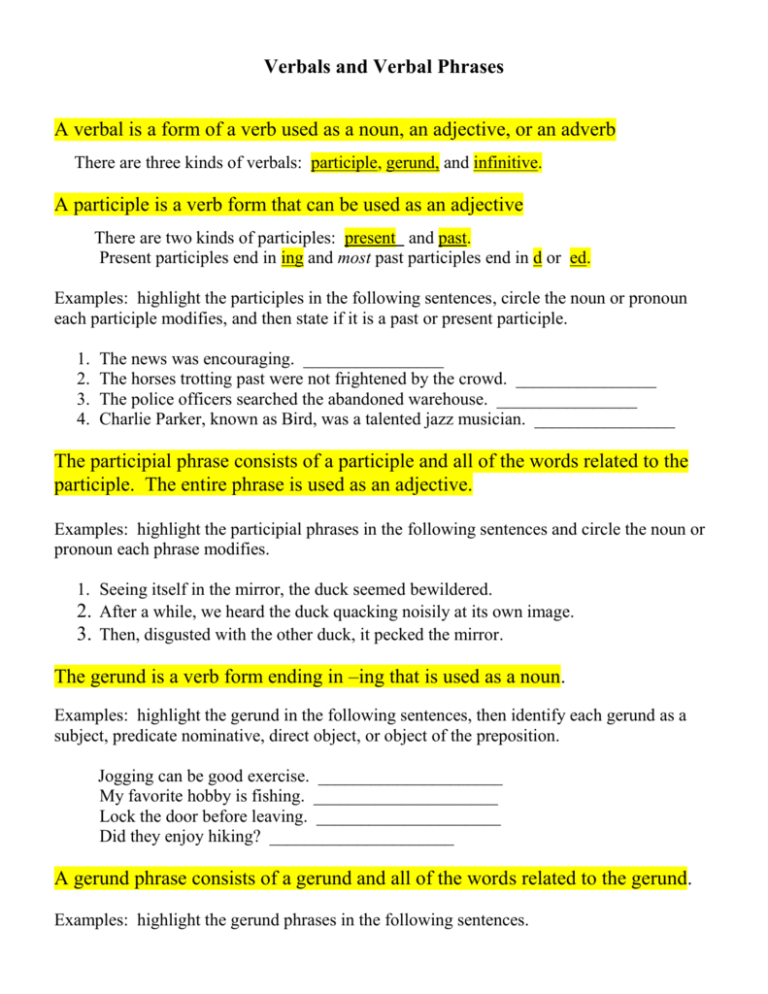
Verbals and Verbal Phrases A verbal is a form of a verb used as a noun, an adjective, or an adverb There are three kinds of verbals: participle, gerund, and infinitive. A participle is a verb form that can be used as an adjective There are two kinds of participles: present and past. Present participles end in ing and most past participles end in d or ed. Examples: highlight the participles in the following sentences, circle the noun or pronoun each participle modifies, and then state if it is a past or present participle. 1. 2. 3. 4. The news was encouraging. ________________ The horses trotting past were not frightened by the crowd. ________________ The police officers searched the abandoned warehouse. ________________ Charlie Parker, known as Bird, was a talented jazz musician. ________________ The participial phrase consists of a participle and all of the words related to the participle. The entire phrase is used as an adjective. Examples: highlight the participial phrases in the following sentences and circle the noun or pronoun each phrase modifies. 1. Seeing itself in the mirror, the duck seemed bewildered. 2. After a while, we heard the duck quacking noisily at its own image. 3. Then, disgusted with the other duck, it pecked the mirror. The gerund is a verb form ending in –ing that is used as a noun. Examples: highlight the gerund in the following sentences, then identify each gerund as a subject, predicate nominative, direct object, or object of the preposition. Jogging can be good exercise. _____________________ My favorite hobby is fishing. _____________________ Lock the door before leaving. _____________________ Did they enjoy hiking? _____________________ A gerund phrase consists of a gerund and all of the words related to the gerund. Examples: highlight the gerund phrases in the following sentences. Having a part-time job may interfere with your school work. The townspeople heard the loud clanging of the fire bell. We crossed the stream by stepping carefully from stone to stone. An infinitive is a verb form that can be used as a noun, an adjective, or an adverb. Usually begins with to. Highlight the infinities in the following sentences. To install the ceiling fan took two hours. Courtney’s ambition is to become a doctor. The best time to visit Florida is December to April. The gymnasts were eager to practice their routines. The caravan stopped at the roadside rest to rest. An infinitive phrase consists of an infinitive and its modifiers and complements. Examples: highlight the infinitive phrases in the following sentences. The crowd grew quiet to hear the speaker. Peanuts and raisins are good snacks to take on a camping trip. To lift those weights takes a lot of strength. Appositives and Appositive Phrases An appositive is a noun or pronoun placed beside another noun or pronoun to identify or explain it. An appositive phrase consists of an appositive and its modifiers. An appositive phrase is usually set off from the rest of the sentence by commas! Examples: highlight the appositive or appositive phrases in the following sentences. Officer Webb, one of the security guards, apprehended the burglar. Black Hawk, a famous chief of the Sauk Indians, fought hard for the freedom of his people. Tacos and tamales, some of the most popular Mexican dishes, are served here. My dog, the mutt with floppy ears, can do tricks.
